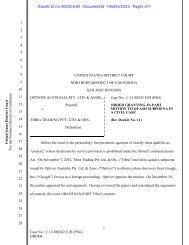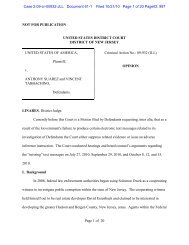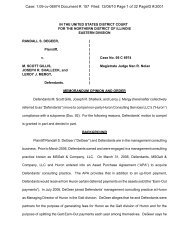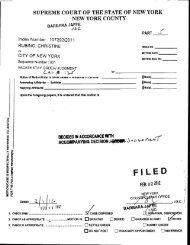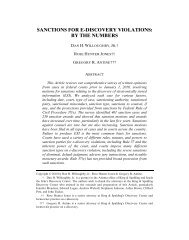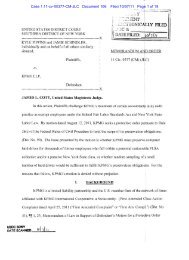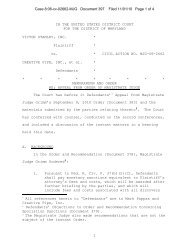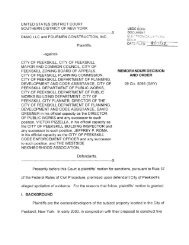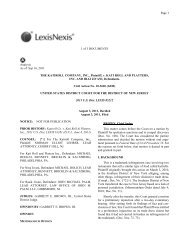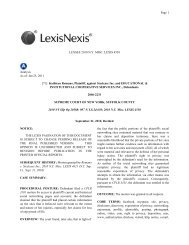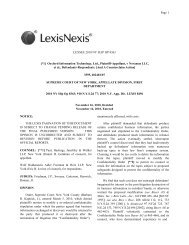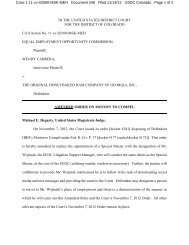Rimkus Consulting Group Inc. v. Cammarata - Ballard Spahr LLP
Rimkus Consulting Group Inc. v. Cammarata - Ballard Spahr LLP
Rimkus Consulting Group Inc. v. Cammarata - Ballard Spahr LLP
Create successful ePaper yourself
Turn your PDF publications into a flip-book with our unique Google optimized e-Paper software.
Case 4:07-cv-00405 Document 450 Filed in TXSD on 02/19/10 Page 96 of 139<br />
effect of a judgment attaches once a final judgment has been signed by the trial court and<br />
would bar any action filed thereafter unless the judgment is reversed on appeal.” Id. (quoting<br />
LA. REV. STAT. § 13:4231, comment (d)). In Maples v. LeBlanc, Maples & Waddell, LLC,<br />
No. Civ. A. 02-3662, 2003 WL 21467540 (E.D. La. June 20, 2003), the plaintiff argued that<br />
a prior Louisiana state court decision was not final because it was on appeal and the<br />
Louisiana res judicata statute provides that “a valid and final judgment is conclusive between<br />
the same parties, except on appeal or other direct review,” id. at *3. The court rejected this<br />
interpretation of the statute because it was inconsistent with the case law and with comment<br />
(d) of the Louisiana res judicata statute. Id. at *4.<br />
One Louisiana court has held that a judgment is not final while an appeal is pending.<br />
See Dupre v. Floyd, 01-2399, p. 4 (La. App. 1 Cir. 7/1/02); 825 So. 2d 1238, 1240. But that<br />
court relied on “[t]wo older cases under prior law,” Mente & Co. v. Anciens Etablissements<br />
Verdier-Dufour & Cie, 149 So. 492, 493 (La. 1933), and Richmond v. Newson, 24 So. 2d<br />
174, 175 (La. App. 2 Cir. 1945), which involved a narrower version of Louisiana preclusion<br />
law. Before the 1991 statutory amendments, Louisiana law on res judicata was substantially<br />
narrower than federal law. See Terrebonne Fuel & Lube, <strong>Inc</strong>. v. Placid Refining Co., 95-<br />
0654 (La. 1/16/96); 666 So. 2d 624, 631. The original Louisiana doctrine of res judicata<br />
was based on presuming the correctness of the prior judgment rather than on extinguishing<br />
the causes of action that might have been raised in the litigation that led to that judgment.<br />
See id. at 631–32. The court in Dupre relied on cases that were based on that presumption<br />
of correctness, ignoring the fact that the current version of Louisiana res judicata law is more<br />
96



